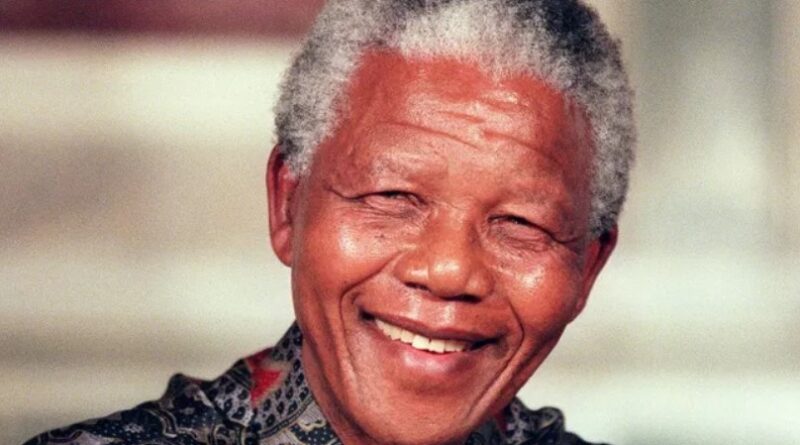This Week In Black History July 13 -19, 2022
NELSON ROLIHLAHLA MANDELA
July 13
1863—One of the bloodiest race (or perhaps more appropriately “racist”) riots in America history begins. The event, known historically as New York City Draft Riots, was sparked by angry opposition to the congressionally passed Enrollment Act—a mandatory draft requiring White men to fight in the Civil War. Many Whites went on a rampage out of opposition to the draft and fear of freed Blacks competing with them for jobs. The rioting lasted from July 13 to July 16 before it was finally put down with the aid of Federal troops. But before it was over, an estimated 100 people had been killed and 300 wounded—most of them Blacks. The mandatory draft also reflected a fact commonly omitted from standard American history texts: the class nature of much legislation. In this instance, the draft only applied to poor and working-class Whites. Wealthy Whites were officially exempted from the draft by paying a fee.
1868—Oscar J. Dunn, a former slave, is installed as Louisiana’s lieutenant governor. At the time, it was the highest elective state position ever achieved by any African-American. Another Black, Antoine Dubuclet, was installed as state treasurer. However, virtually all the Black political gains after the Civil War would be wiped out by the Hayes-Tilden Compromise of 1872 and the subsequent anti-Black Jim Crow laws. It would take nearly 100 years (during the 1960s) before Blacks would once again begin to match the political gains they had made during the post-Civil War period.
July 15
1779—Noted Black spy Pompey Lamb supplies the American revolutionary forces with information, which enables them to win the Battle of Stony Point—the last major battle of the Revolutionary War in New York State. Lamb had worked as a fruit and vegetable delivery man for the British Army.
1822—Philadelphia becomes one of the first major cities to open its public schools to Blacks. The first school was a segregated one just for Black boys. One for girls was opened four years later in 1826. The city’s public schools would remain segregated until the 1930s.
July 16
1862—Crusading journalist and anti-lynching activist Ida B. Wells-Barnett is born in Holly Springs, Miss. Wells-Barnett was a true militant activist. Her editorials so angered Whites in the Memphis, Tenn., area that a mob burned down the building which housed her newspaper. She was also one of the original founders of the NAACP and in 1884 she committed a “Rosa Parks” type act when she refused an order to give up her seat on a train to a White man. It took the conductor and two other men to remove her from the seat and throw her off the train.
1882—Violette A. Johnson is born. She would become the first Black female attorney allowed to practice before the United States Supreme Court.
July 17
1794—Former slave and minister Richard Allen officially dedicated the Bethel African Methodist Episcopal Church in Philadelphia, Pa. The church was the first all-Black denomination not affiliated with a larger White congregation. The incident leading to the dedication took place in 1787 when Allen, Absalom Jones and several other Blacks were thrown out of Philadelphia’s St. George’s Methodist Episcopal Church when they attempted to pray along-side Whites. The AME Church would go on to become one of the largest Black religious denominations in America.
1862—As the Southern, pro-slavery rebels prove more difficult in battle than expected, Congress passes a law giving President Abraham Lincoln the authority to begin recruiting free Blacks and recently freed slaves into military service during the Civil War.
1911—Frank M. Snowden is born in York County, Va. The Harvard educated Snowden would become a prominent professor at Washington, D.C.’s, Howard University and a leading authority on Blacks in ancient history. His major works include “Blacks in Antiquity: Ethiopians in the Greco-Roman Experience” and “Before Color Prejudice: The Ancient View of Blacks.” Snowden documented that “Ethiopians pioneered religion” and played a major role in the development of the greatness of ancient Egypt. Snowden also showed that Blacks influenced the development of both ancient Greek and Roman societies working in capacities ranging from musicians to scholars. Snowden died in February 2007 at the age of 95.

1942—Heavyweight boxing champion Muhammad Ali is born Cassius Marcellus Clay in Louisville, Ky. Ali would join the Nation of Islam and become a major opponent of the U.S. war in Vietnam. He would later split with Malcolm X when Malcolm broke away from the Nation of Islam.
1944—The so-called Port of Chicago Mutiny takes place. In the middle of America’s involvement in World War II, an ammunitions depot at Port Chicago, Calif., explodes killing 320 men—most of them Black. It was the worse stateside disaster in U.S. military history. However, when 258 surviving Black soldiers refused to return to work until they received certain safety guarantees, their refusal was labeled a mutiny by military authorities. Fifty of the soldiers were convicted of mutiny and jailed. However, after the war, President Harry S. Truman commuted their sentences.
July 18
1753—This is believed to be the day Lemuel Haynes escaped from slavery in Massachusetts. The product of a Black father and a mother who was normally described in history texts as “a White woman of respectable ancestry,” Haynes would become a renowned figure in early American history. He fought with distinction in American Revolutionary War for independence from Britain and would become the first Black person ordained as a minister by a mainstream Protestant church. He was also the first Black in American history to become head minister at a predominantly White church.
1863—Sergeant William H. Carney was the first Black person to receive the Congressional Medal of Honor for bravery in battle. The bravery which led to the medal occurred on this day in 1863 at the battle of Battery Wagner.

1918—Nelson Rolihlahla Mandela is born in Transkei, South Africa. Mandela would spend 27 years in prison for his struggles against the system of racial oppression in South Africa known as apartheid. When he was finally released in 1990, it was a day of massive celebration for Blacks and progressive Whites throughout South Africa and much of the world. He won hundreds of awards for his anti-apartheid efforts including the Nobel Peace Prize in 1993. With the downfall of apartheid in the early 1990s, Mandela would become the first Black president of the country in 1994. He was widely praised for not launching a campaign of revenge against his White former oppressors.
July 19
1848—Anti-slavery activist and the foremost Black leader of his day Frederick Douglass gives a stirring speech at the First Women’s Rights Convention, which took place in Seneca Falls, N.Y. Douglas helped sway the 260 women and 40 men present to back a women’s right to vote resolution being pushed by Elizabeth Cady Stanton. Initially, many of the delegates opposed the resolution fearing it was too radical an idea for the times but changed their minds after hearing Douglass’ presentation. Women would not finally get the right to vote until 1920.
1941—The first U.S. Army Flying Academy for Black cadets is officially dedicated at Tuskegee, Ala. Between 1940 and 1946, 992 pilots were trained. More than 400 would see action in World War II even though many Whites initially felt Blacks were not intelligent enough to fly airplanes. The Tuskegee Airmen, as they became known, would fly with great distinction during the war. They were credited with downing 109 German planes and destroying numerous enemy fuel dumps, trucks and planes. Approximately 150 of them lost their lives during training or combat. Finally, in March 2007,more than 300 surviving members and their wives were honored and the airmen received the Congressional Gold Medal.
1952—Joe Louis Reliford broke the color barrier in Georgia State Baseball in Statesboro, Ga. He pinch hit, threw out a runner from left field and robbed the Statesboro Pilots best hitter, Jim Shuster of a home run—all in one inning and at the age of 12. His historical catch is on display in Cooperstown, N.Y., where he is the only batboy among Major League Baseball Hall of Fame Inductees. Reliford is the author of “From Batboy to the Hall of Fame.”

